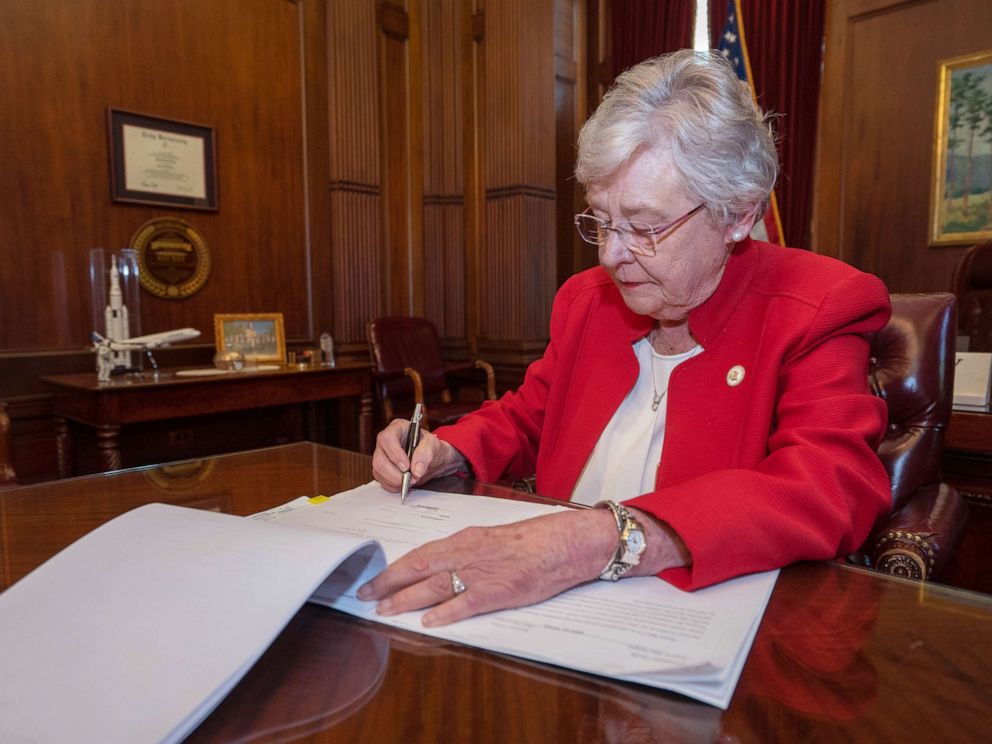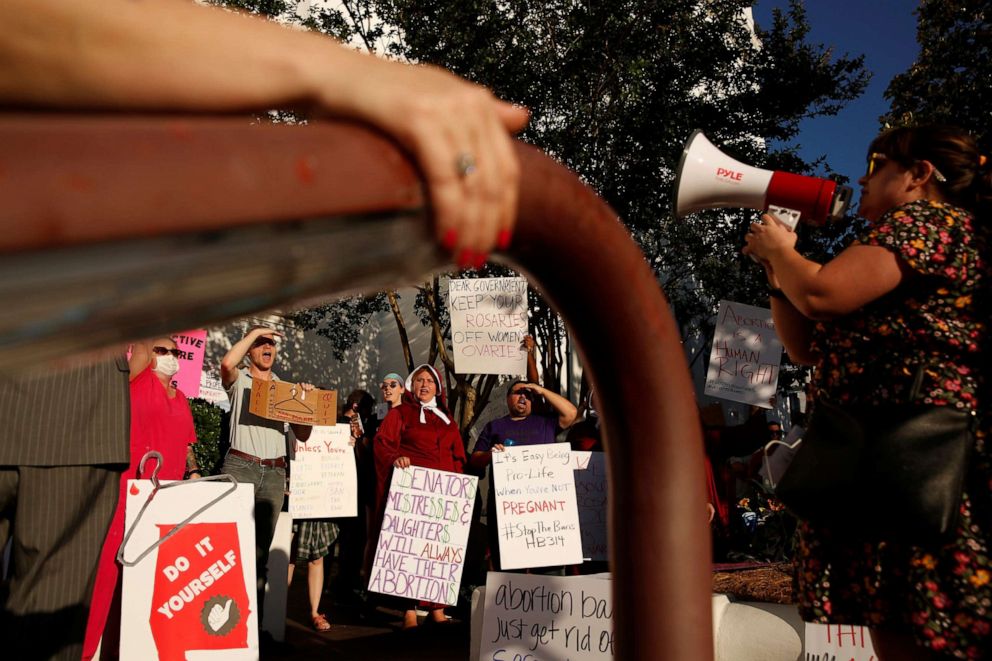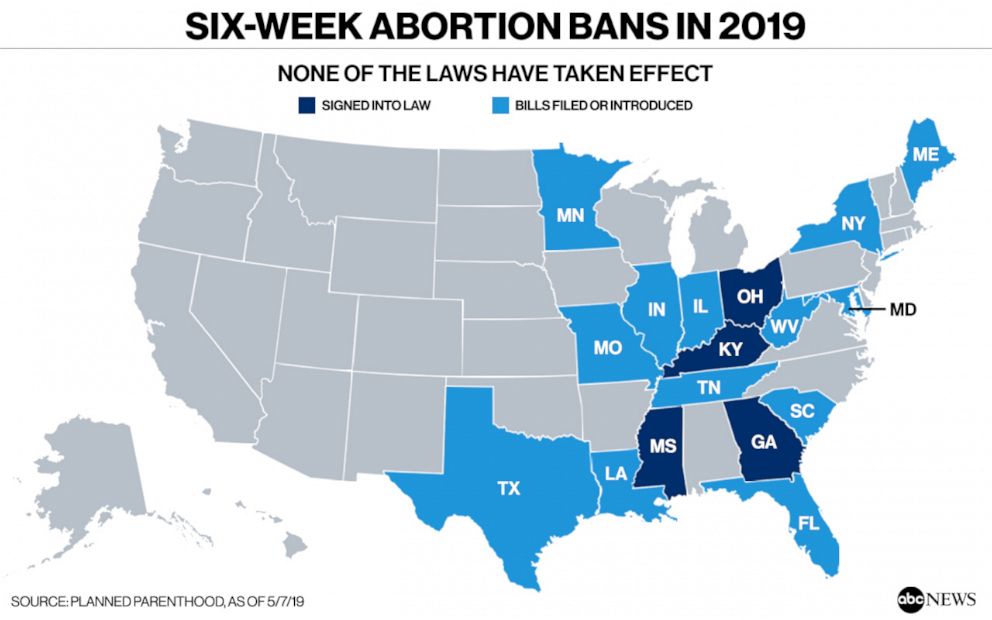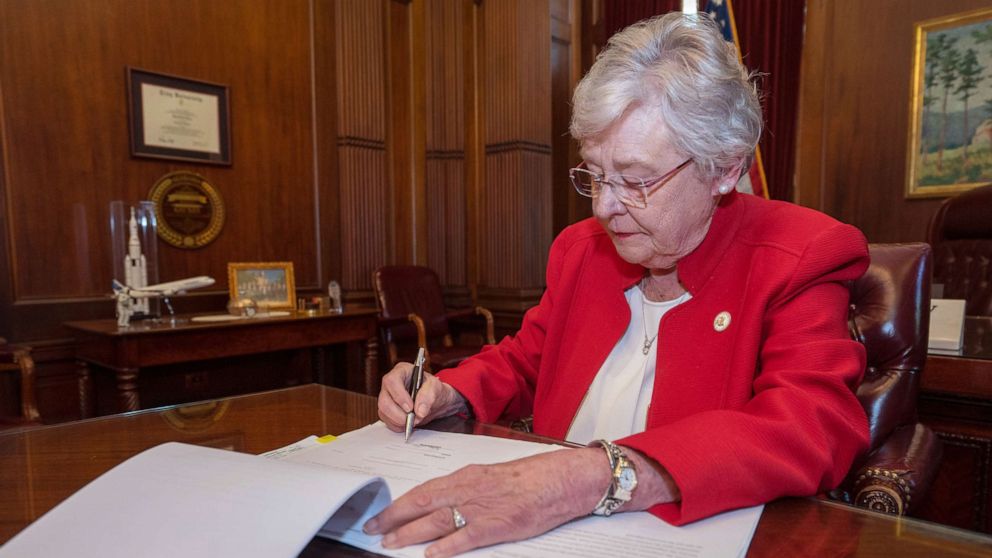[ad_1]
Alabama Gov. Kay Ivey signed the state’s controversial abortion ban into law, though it is expected to face near-immediate legal challenges.
The ban makes it a felony for doctors in the state to perform abortions in all cases, with the only exception being when the life of the mother is threatened.
The law, which was passed by the state’s Senate on Tuesday, does not include exceptions in cases of rape or incest.
The original sponsor of the bill when it was in the state’s House of Representatives previously said that supporters of the bill expect it to be challenged in the courts, but also hope that happens. Rep. Terri Collins told ABC News that they wrote the bill with the hopes that it will be picked up by the Supreme Court and allow for the landmark federal ruling in Roe v. Wade, which allowed for legal abortions, to be overturned.
In her statement announcing her decision to sign the bill, Ivey points to the fact that the bill “was approved by overwhelming majorities in both chambers” of the state’s legislature.
 State of Alabama Office of the Governor
State of Alabama Office of the Governor
“Many Americans, myself included, disagreed when Roe v. Wade was handed down in 1973. The sponsors of this bill believe that it is time, once again, for the U.S. Supreme Court to revisit this important matter, and they believe this act may bring about the best opportunity for this to occur. I want to commend the bill sponsors, Rep. Terri Collins and Sen. Clyde Chambliss, for their strong leadership on this important issue,” Ivey said in her statement.
According to data compiled by the Center for American Women and Politics at Rutgers University, Alabama ranks 47th in terms of female representation, with 15.7% women in their state legislature on the whole.
There are four women in the 35 seats in the state Senate and 18 women in the 105 seats in the House of Representatives.
There have been threats of legal challenges by civil rights groups already. The ACLU of Alabama issued a tweet on Tuesday night, after the state’s Senate vote and before the governor signing it into law, saying that they and the national ACLU as well as Planned Parenthood Federation of America “will file a lawsuit to stop this unconstitutional ban.”
“Planned Parenthood is ready to fight it in the courts,” Dr. Leana Wen, the president of Planned Parenthood Federation of America, said on a call with reporters Wednesday morning.
 Christopher Aluka Berry/Reuters
Christopher Aluka Berry/Reuters
Separate from any delays prompted from legal challenges, it will take at least six months for the law to go into effect.
Alabama is just the latest state to put an abortion restriction into law, following Georgia’s governor recently signing a so-called “heartbeat” bill into law, making it illegal to have an abortion after a fetal heartbeat is detected which can come as early as six weeks into a pregnancy.
 ABC News
ABC News
The so-called “heartbeat” bans have been the more common avenue for states to impose abortion restrictions of late, with four states passing them into law and 13 others introducing or filing similar bills.
The Alabama ban goes further than any such bans, as it does not provide any window of a pregnancy when an abortion is legal.
[ad_2]
Source link

